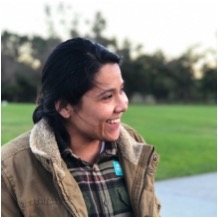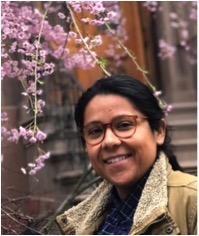
Lylliam Posadas
Friday January 29th, 11:00am – 12:00pm (PT)

Conservators can play a significant role in the repatriation process and in addressing concerns in the care of sensitive collections. Conservators and repatriation staff can work together with tribal and community representatives to address some of the unjust histories of museum acquisitions and develop new approaches for collections stewardship. Professional ethics in the conservation field, as well as technical knowledge and skill sets, can be a source of support for repatriation and ethical stewardship. Diversity, equity and inclusion (DEAI) policies and programs are critical in building systems that encourage considerate and conscientious professional practices that can support tribal and community ownership and control of collections.This program will discuss how conservators, both students and professionals, can support the repatriation of Indigenous belongings under the Native American Graves Protection and Repatriation Act (NAGPRA). It will also explore how conservators can address concerns beyond NAGPRA that are relevant to the repatriation process and experience and to the training of future generations of conservators.
Lylliam Posadas has experience with repatriation and collaborative and community-driven research within museums, universities, and community organizations. She is interested in how institutional policies support the development and sustainability of collaborative research and collections care practices. Lylliam focuses on systemic institutional change in support of repatriation, collections care and access, representation and diversity initiatives, and the use of non-destructive and non-invasive methods of investigating community-driven research questions. She received an MSc in the Technology and Analysis of Archaeological Materials from University College London and a double BA in Anthropology and Psychology from the University of California, Los Angeles. Lylliam has participated in field research, including preservation efforts in Ghana, Peru, Louisiana, and California and also serves on several boards and committees, including the Mellon Opportunity for Diversity in Conservation. Lylliam is also involved in community-driven research, policy development, and advocacy in public health which informs her approach to heritage work.

